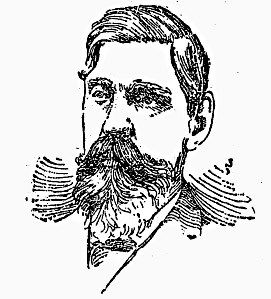Interesting thoughts on pay for aldermen, from the Daily Republican-Sentinel of December 19, 1882. I wonder how this discussion would go today.
Dennis Pajot
Milwaukee
The Council went into committee of the whole, with Ald. Dixon in the chair, to consider the question of salaries for aldermen, to take effect January 1.
Ald. Dodge moved to refer the whole matter to a special committee of five, who would present it to the Legislature to have the compensation fixed as thought best, not to exceed $500. Ald. Barth moved to make the remuneration $1000 per annum, $500 not being enough for good men. Ald. Stemper said he drew up the bill to secure salaries with the best intentions in the world. The members of the Council get no thanks for anything, but were always ridiculed and blamed. Ald. Stirn favored the passage of the bill to take effect in the year 2000. Ald. Hinsey said the offices were accepted with the knowledge that there was no recompense, and it was belittling the position to go to voting salaries. It did not agree with the aid to reduce taxes. Ald. Wood thought the aldermen were abused for everything, and should be paid, yet he could hardly vote for it. Ald. Barth referred to the modesty of the Council in not wishing to vote themselves pay, and moved no present member receive emolument, but in future $1,000 per annum be paid. Ald. Chase said to take such a step would lower the standing of the Council, as it would be filled, if there was a salary attached, by men with no other wish than to get the money. Ald. Stemper said he did not know when he was elected how much work there was attached, or he would not have accepted. The gentleman spoke at some length very warmly in support of his bill, jingling the change in his pockets meanwhile, as though it was the fat “roll” of a year’s wages at his figure. Ald. Stirn said if the aldermen were paid, the school commissioners should be, and wanted to know if that was done, where for God’s sake would the city go to? Ald Swan said Ald. Chase had hit the nail on the head. If aldermen became salaried officers caucuses would be packed, and elections would be made to carry out schemes. Ald. Fritz put it that his time was worth money, and he wanted pay for his services. Ald. Knoernschild said he had worked all he cared to for glory, and he wanted money. He would recommend, however, that the first year of service there be no compensation, but for the next two of the term of office there be paid $1000. The committee adjourned to report progress.
Ald. Dodge
